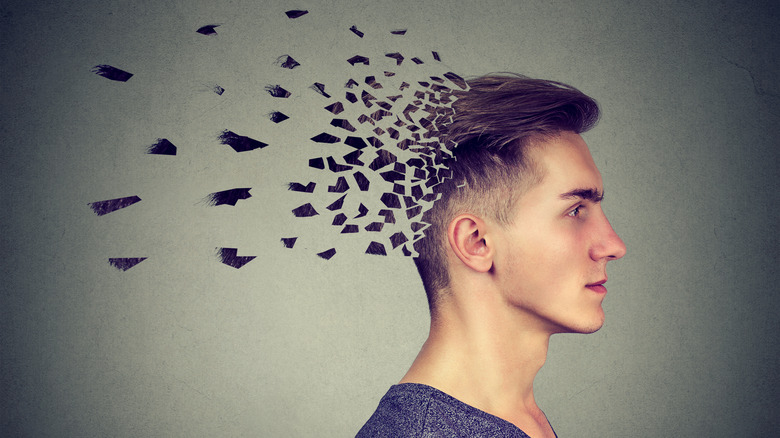We live in an interconnected world where we can shop, chat, work, and pay the bills with just a few clicks. Whether we want to learn a new language or book airline tickets, there’s an app for it. Without a doubt, technological innovation can make our lives easier — but it also has its drawbacks. A potential downside is social isolation, which affects millions of people from all over the world. This problem often leads to feelings of loneliness and can take a toll on our health.
Tulane University explains that social isolation and loneliness may contribute to depression, anxiety, and cardiovascular problems. In clinical trials, loneliness has been linked to a 40% higher risk of dementia. People who feel lonely are also more likely to experience suicidal thoughts. Over time, they may “slide into unhealthy habits,” says epidemiologist Nicole Valtorta (via the American Psychological Association). What’s more, loneliness can increase stress and affect sleep, potentially contributing to inflammation and poor immunity.
About 36% of Americans, including 61% of those between 18 and 25 years old, report feeling lonely “frequently” or “almost all the time or all the time,” according to the Harvard Graduate School of Education. This brings up the question, how does loneliness affect the brain? Most importantly, what can you do to overcome this feeling and get your life back on track? Let’s find out.
Loneliness can accelerate cognitive decline and memory loss

Loneliness affects people of all ages. According to the Harvard Graduate School of Education, an international study in 2024 reported that 40% of respondents aged 16 to 24 experienced this feeling “often or very often.” The worst part is that loneliness can cause changes to the brain, leading to diminished cognitive performance, depression, and other mental health issues. For example, a 2007 study published in JAMA Psychiatry found that perceived social isolation, or loneliness, may increase the risk of dementia later in life. Social activities, on the other hand, can help prevent cognitive decline.
Researchers believe that loneliness may alter the brain structures that support memory, cognition, and social behavior. As a result, it can affect cognitive function and mental health, especially in older adults. Loneliness may also interfere with gene expression and trigger an inflammatory response, according to 2024 evidence published in the journal Brain Sciences. These factors can accelerate cognitive decline, leading to Alzheimer’s disease and other forms of dementia.
Perceived social isolation may also affect memory, reports a 2024 study featured in the Journals of Gerontology: Series B. Scientists found that older adults who feel less connected to others experience a greater decline in memory.
“It’s something I’m seeing clinically. Some people were okay before the pandemic and now they’re having faster cognitive decline,” said behavioral neurologist Joel Salinas (via Harvard Health Publishing).
What’s the best way to overcome loneliness?

Feeling lonely can take a toll on your mental, physical, and emotional health, causing changes to the brain. One way to address these challenges is to find a hobby that brings you joy, suggests Tulane University. Reading, meditation, journaling, and other relaxing activities can calm your mind, making it easier to overcome negative feelings.
Ideally, try to create a daily routine and cultivate healthy habits, such as exercise. These small things can improve mental well-being and give you a sense of accomplishment. Also, Verywell Mind suggests seeking ways to connect with like-minded people who share your passions. For example, you could join a public speaking club like Toastmasters, attend local workshops, take craft classes, or get involved in a local project.
As Verywell Mind points out, volunteering is beneficial to mental health. If you love animals, consider volunteering at a local animal shelter. Alternatively, adopt a pet and focus your attention on them. In one study, dog owners experienced improved mental well-being and reduced loneliness within three months of getting a pet, reports BMC Public Health. As the researchers note, regular human-dog interactions have beneficial effects on mood.
Last but not least, you can join online platforms like Meetup, Friender, Yubo, Skout, or Bumble BFF to meet new people and build connections. Even Facebook groups can be valuable for meeting people locally, although it is important to be careful who you meet online, cautions Verywell Mind.




